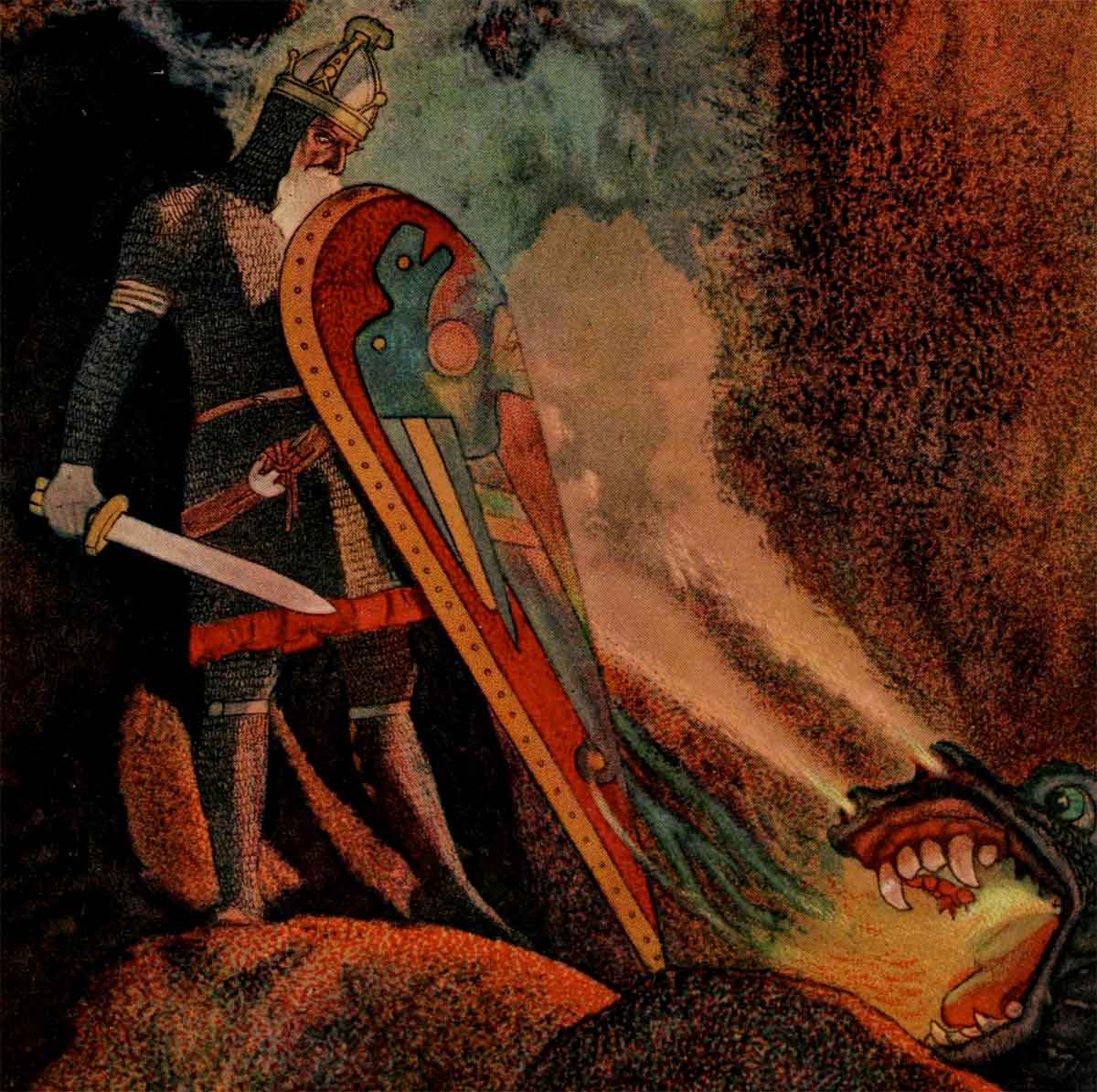View
Cyborgs in Hell?
Patrick B. Whalen on Virtual Reality versus Real Personality
In the Inferno, before Dante enters the hardened iron walls of the city of Dis, walls hardened much like the wills of the sinners punished within, he crosses the third circle of hell in a gloomy downpour. This is the part of hell reserved for those who committed various sins of incontinence. One could make a joke correlating physical incontinence with the downpour, but I think it is safe to say that Dante is here concerned with moral incontinence, which Thomas Aquinas describes as a failure to curb one's passion for things from which it is praiseworthy to refrain.
These are not, I'm afraid, heroic sinners—sinners who impress and awe the reader with the scope and audacity of their crimes. They are not sinners like Farinata, who scorns his infernal punishment the way a salty old campaigner scorns the discomforts of the siege; or like Ulysses, whose charisma even in hell is nearly irresistible as he rehearses to Virgil his final moments on earth.
No, the third circle is for that troop of incontinents called gluttons—the sinners who simply needed more self-control. Wading with Virgil through the slush of these dead souls, Dante is accosted by one of them, who pleads with Dante to remember him, implying that they knew one another on earth. Dante is willing enough, but he can't seem to recognize the importuning glutton. The soul tells Dante that his name was Ciacco, a man Dante did indeed know on earth, but after a brief exchange, Ciacco's eyes lose focus and he falls back among the mass of anonymous and mediocre sinners.
Reduced to Slush
Why does Dante fail to recognize his fellow Florentine Ciacco? Elsewhere in the Commedia Dante is quick to identify old friends and enemies when he sees them, however changed their appearance might be. But there is something particular in his encounter with Ciacco that hinders recognition.
Dante's famous technique for imagining the punishments of the damned—a technique called contrapasso—consists of showing the sinner suffering an imitation or inversion of his dominant and defining sin. In the case of the gluttons, Dante's contrapasso has them wallowing in a filthy, frigid, monotonous rain, their bodies forming an indistinct mass. And, as the Ciacco incident indicates, even their features are eroded into an amorphous blob.
As usual in Dante, the punishment fits the crime. Thomas Aquinas describes the sins of incontinence as those in which the boundary of reason is transgressed; the sinner plunges into "shameful pleasure" with no self-denial or capacity for renunciation. Naturally, without boundaries and limits, which are things that define us, we expand amoeba-like into whatever is easy, attractive, and at hand. But far from facilitating a liberating and exciting expansion of the self, these sins of incontinence are monotonous and deadening like the snowy rain in the third circle; they reduce the upright person to human slush carpeting the floor of hell, and they erase one's individuality down to the last line etched in a weathered human face.
Perhaps a contemporary rendering of the Inferno would depict the third circle's amorphous slush of humanity as an anonymous crowd of smartphone addicts droning through life like cyborgs. It is tempting to think that no one would willingly choose a fate like Ciacco's, but then, what are we doing with our smartphones? A cyborg dystopia actually corresponds closely to Dante's third circle, and smartphone addiction is a perfect example of capitulation to incontinence.
The smartphone serves as a portal to the virtual world—a world without borders, where everything is always at hand. It is one of the more prominent accidents of the expansion of digital and cyber technologies in recent decades that the borders of "what is at hand" have receded to a distant horizon, driven by the twin engines of appetite and discontent. Parts of academia have gentrified this age-old human intolerance of boundaries by developing so-called Cyborg Theory, in which the chronically discontented turn to machines and virtual reality in an explicit aspiration for androgyny and other erasures of identity. The merger of the human and the machine, for which Donna Haraway so devoutly wished in her 1984 "Cyborg Manifesto," was to free us from the burdens of sex, gender, and essence, so that we could truly resemble Ciacco and his milieu.
How We Get Features
But if we are to be human rather than cyborg, we'll have to live within the borders of our nature. Perhaps paradoxically, within those borders we are most free to articulate and cultivate our personalities. Within those borders we can develop striking and beautiful features. It is continence, the acknowledgement of natural borders and limitations and the discipline to shape ourselves accordingly, that allows for authentic humanity in a "post-human" age. On the other hand, virtual reality's nearly infinite possibilities encourage us to remain shapeless in the flaccid pursuit of . . . whatever. Virtual reality allows one to cultivate an artificial personality with none of the sacrifices that real personality requires.
According to Dante's reasoning, a person's features—and not, of course, just his physical features—emerge as a consequence of his experience of the real and his exercise of the self-denial that real circumstances occasion. But the articulation of our distinctive features cannot occur as long as we give in to our predilection to suspend ourselves in the amniotic fluid of virtual reality, a kind of permanent placenta in which the jolts of the real world scarcely register. The proliferation of opportunities to immerse ourselves in virtual reality makes it possible for us to indulge our most minute appetites, but it also leaves us with an underdeveloped physiognomy, as it were, with no features carved by renunciation into our human matter. With immediate satisfaction ever at our fingertips, what shape do we have?
Philip Rieff famously quoted Freud in defining the masses as those who lack an instinct for renunciation, closely matching Dante's depiction of the incontinent—those incapable of renunciation—as an indistinct mass. If the industrial revolution precipitated the erasure of individuality through mass production, then the contemporary phenomenon of virtual reality and its implements has very nearly perfected human, or should I say cyborg, homogenization.
Fashioning Cyborgs
There is little use in arguing for a renunciation of the techniques and tools that have come to dominate adult interaction in the contemporary world. But it is alarming that childhood is increasingly curated by screens and virtual reality, and that a child's introduction to the world often comes through an infinitely malleable, ephemeral medium—a kind of technological prophylactic that at once protects the child from reality and perversely exposes him to the implications of virtual reality. Educators compete with one another in subjecting younger and younger students to the relative oblivion of the virtual; expensive and addictive screened trinkets dominate classrooms and family rooms alike; and behavioral medications, especially for young boys, serve the necessary role of neutralizing the body's revolt at being fashioned into—well, a cyborg.
It is not too soon to see the mass cultural effects of the indoctrination of students into virtual reality. As Matthew Crawford details in Shop Class as Soul Craft (Penguin, 2009), clerical white-collar jobs—the holy grail of contemporary careers—are the virtual world's version of the nineteenth-century factory job, with mindless key-punching in flickering fluorescent dungeons the reward for what is all too often a similarly mind-numbing college degree.
Our mode of participating in politics increasingly leaves behind the way of individual excellence and reasoned discourse, and substitutes for them mass demonstrations, cant, and violence. Social media continues its curation of personalities, with a relentless neutralizing effect on the individual imagination. This is hardly a desirable return on the investment in technology we have made for our children. But far worse than the various cultural ills one might blame on our nearly wholesale commitment to technological education, though certainly connected to them, are the implications for an individual's soul and its basic moral and spiritual well-being.
If incontinence renders the soul featureless through a diffusion of one's personality, what do we make of the fact that we check our devices an average of nearly a hundred times each day? How can all these doses of virtual reality possibly help the young develop into unique persons? How can they encourage the cultivation of continence? Is the proliferation of virtual ephemera conducive to making reasoned choices about the good? If it is not so for adults, how can it be so for the relatively inexperienced?
Experience, it has been shown time after time, is a wonderful teacher. Having to suffer the consequences of one's actions in a world that does not simply dissolve and then resolve itself at the swipe of a finger, but that, on the contrary, remorselessly puts pressure on human frailty, is an irreplaceable primer in how to moderate one's behavior. But what natural reinforcement for continence exists in the virtual world, in the world of cyborgs?
The Greatest Teachers
No, the technological revolution has not been a happy one for the young and vulnerable among us. Technological tools that have proven to be character-corroding even to mature adults make for a very unfair fight when leveled at children. Sustained immersion in virtual reality disrupts their development into full, unique, distinct individuals.
Education is not, after all, something one can program into a child as if he were a cyborg. Education is a lived experience, an experience of being led out of ignorance and incontinence into the fully articulated and distinct calling of one's personality. For this project—the education of children rather than cyborgs—natural and supernatural realities collaborate as the greatest teachers.
A child lovingly instructed in the natural consequences of his actions will, in time, learn to moderate those actions. A child exposed to the beauty and rigor of the natural world will find that his place is not one of unqualified domination but of carefully negotiated stewardship. A child confronted with the mystery of the supernatural infused into the natural world will experience the blessings of wonder rather than the malaise of discontent. We need schools that place the young in contact with reality, schools that provide occasions for wonder, and schools that teach the young to be attentive to what is greater than themselves.
Patrick B. Whalen is the founding headmaster of St. Martin's Academy, a farm-based boarding high school for boys in Kansas. He served on active duty in the Marine Corps for nine years and has published poetry, translations, and essays in a variety of journals and books.
subscription options
Order
Print/Online Subscription

Get six issues (one year) of Touchstone PLUS full online access including pdf downloads for only $39.95. That's only $3.34 per month!
Order
Online Only
Subscription

Get a one-year full-access subscription to the Touchstone online archives for only $19.95. That's only $1.66 per month!
bulk subscriptions
Order Touchstone subscriptions in bulk and save $10 per sub! Each subscription includes 6 issues of Touchstone plus full online access to touchstonemag.com—including archives, videos, and pdf downloads of recent issues for only $29.95 each! Great for churches or study groups.
Transactions will be processed on a secure server.
more on literature from the online archives
more from the online archives
calling all readers
Please Donate
"There are magazines worth reading but few worth saving . . . Touchstone is just such a magazine."
—Alice von Hildebrand
"Here we do not concede one square millimeter of territory to falsehood, folly, contemporary sentimentality, or fashion. We speak the truth, and let God be our judge. . . . Touchstone is the one committedly Christian conservative journal."
—Anthony Esolen, Touchstone senior editor













